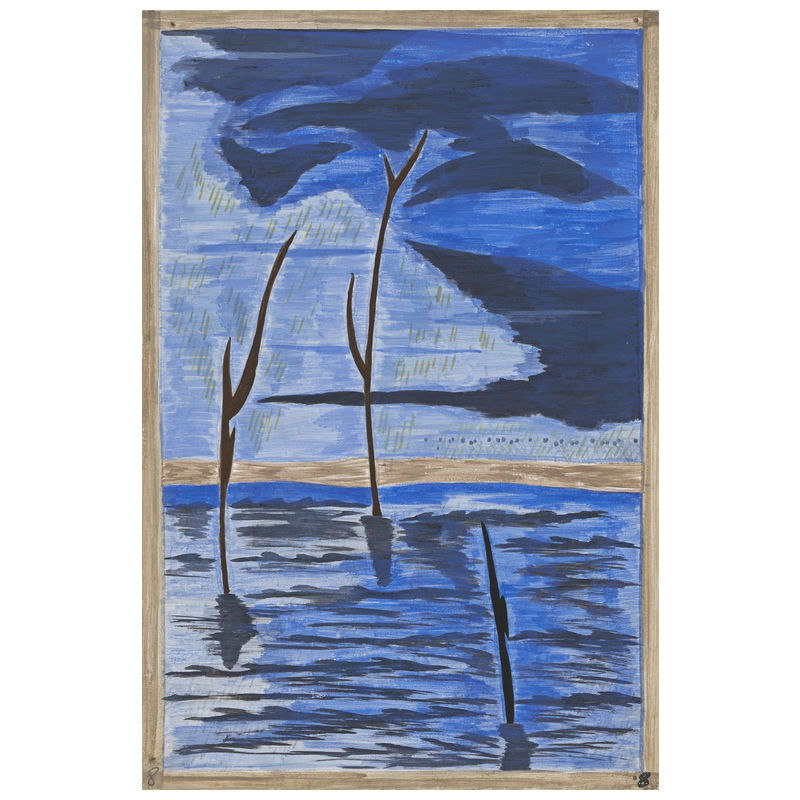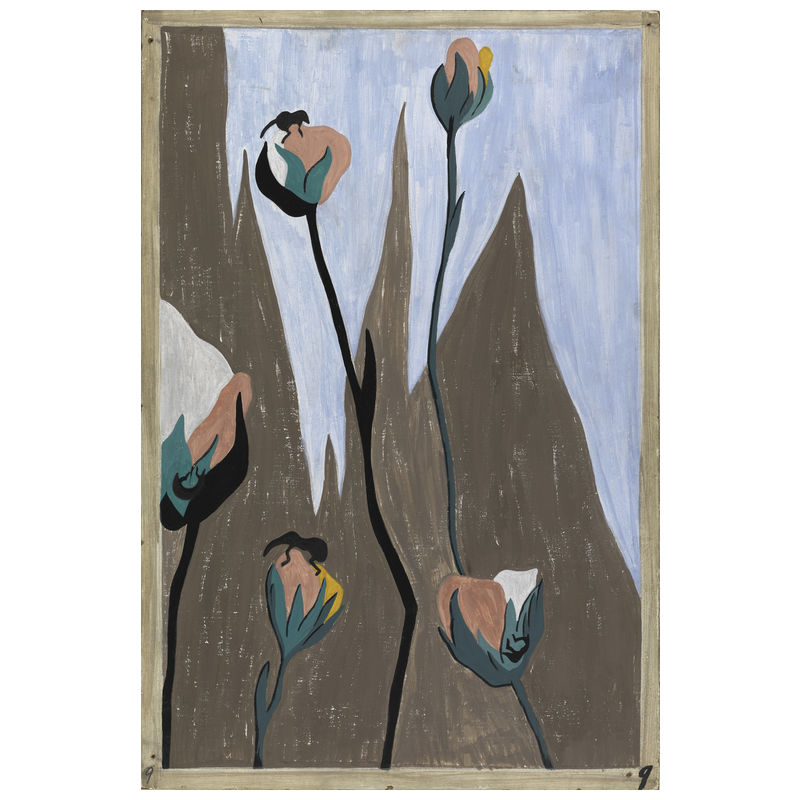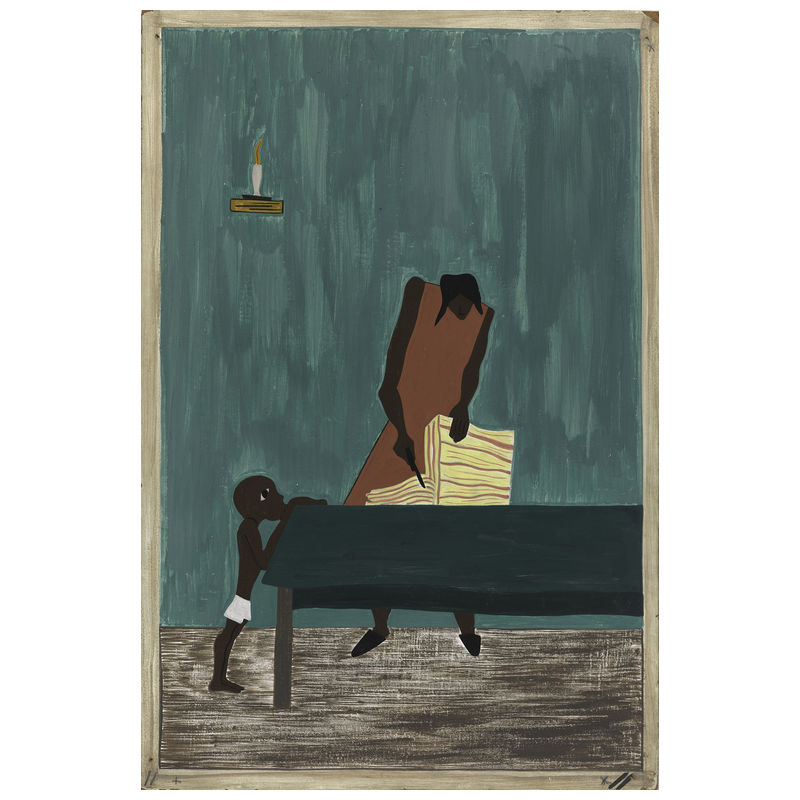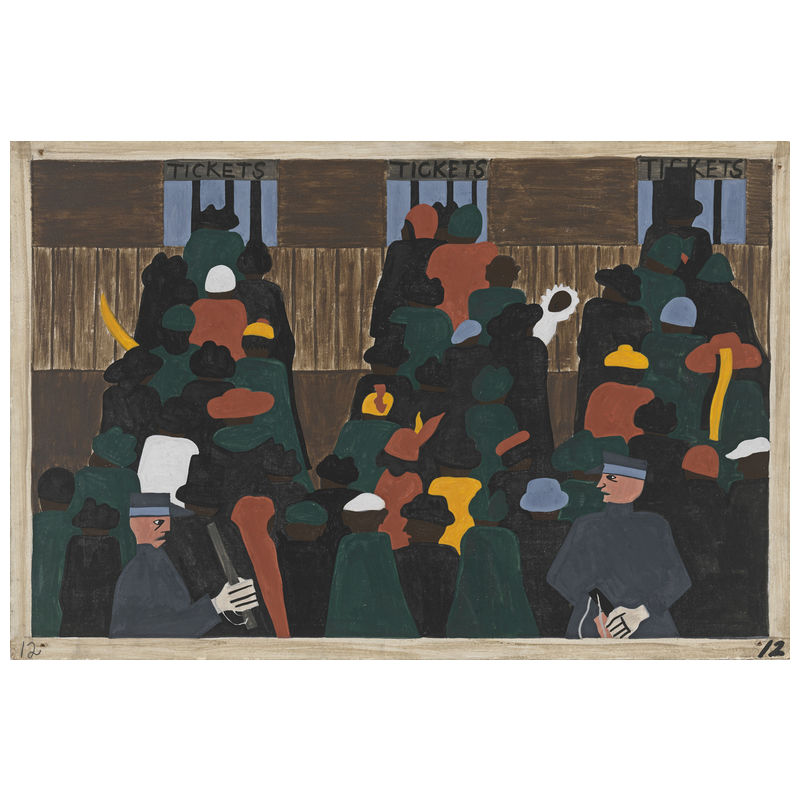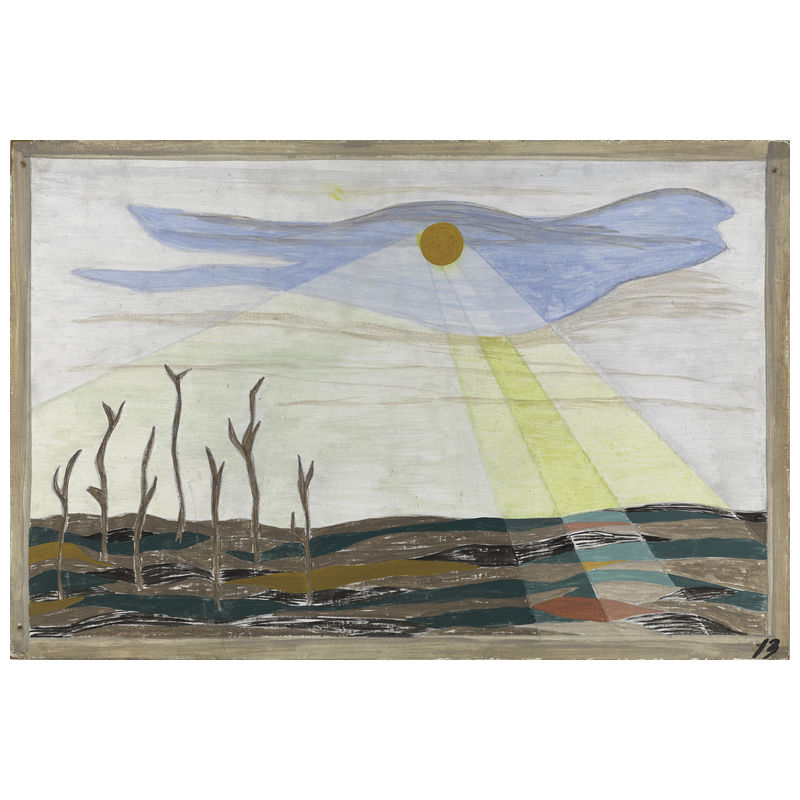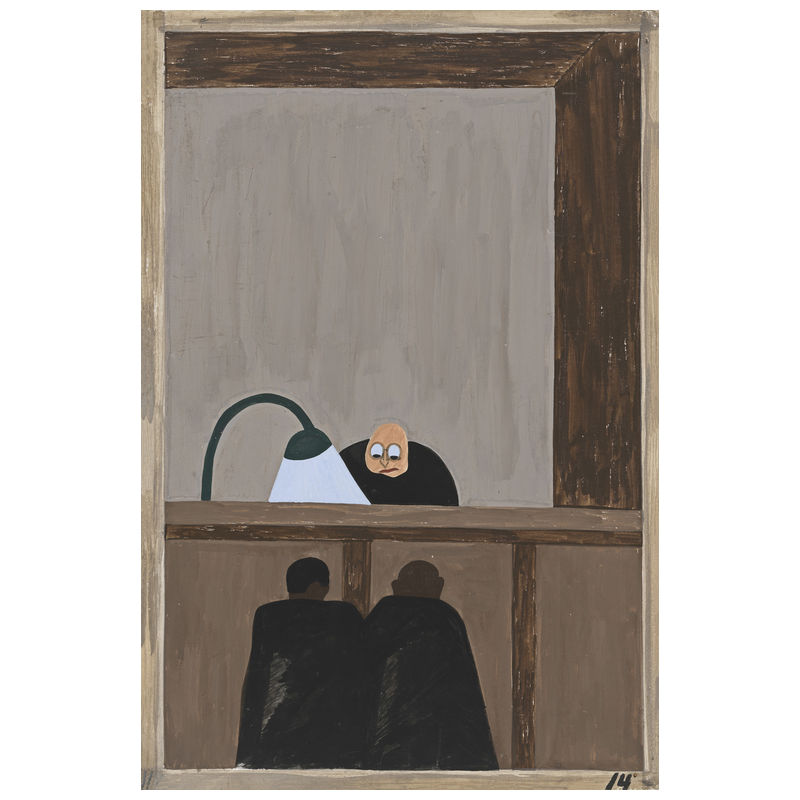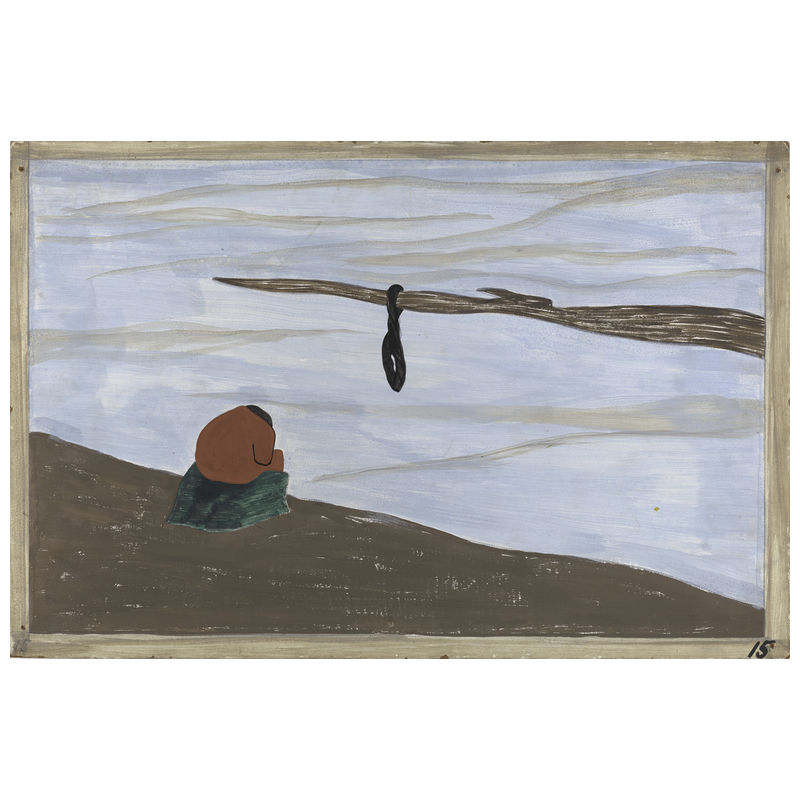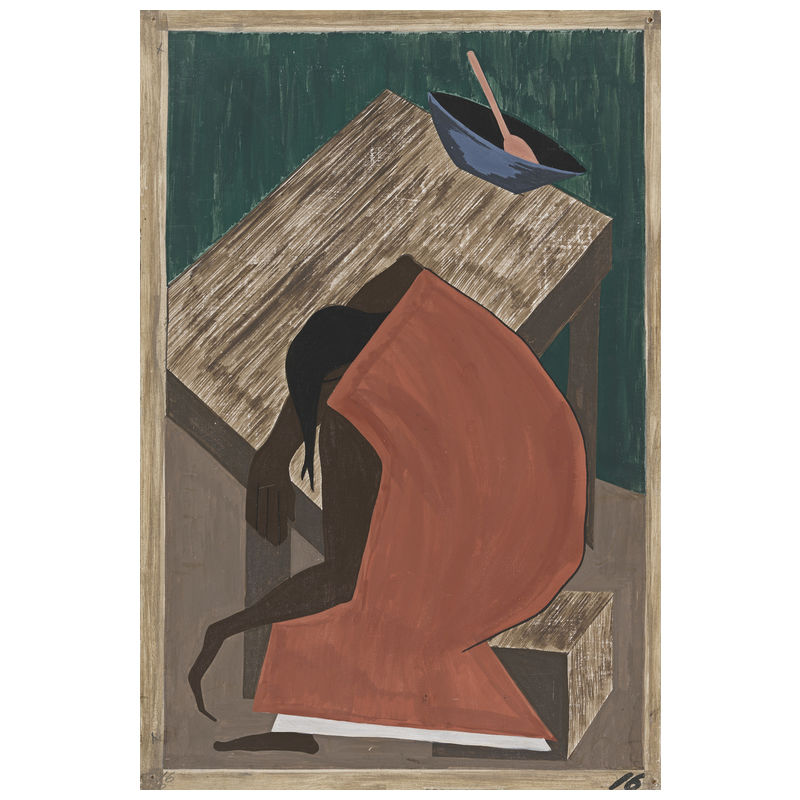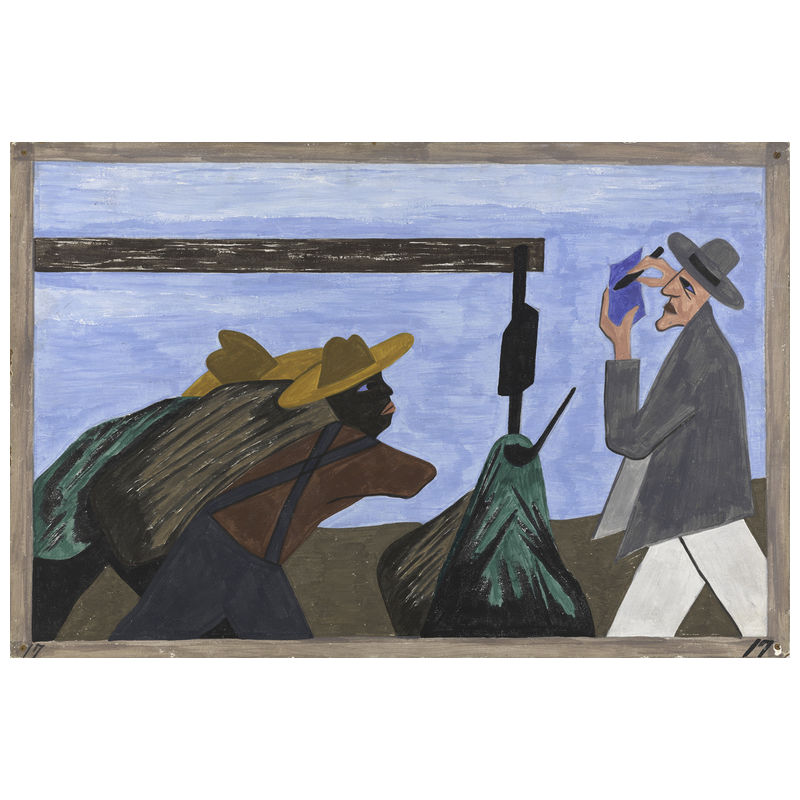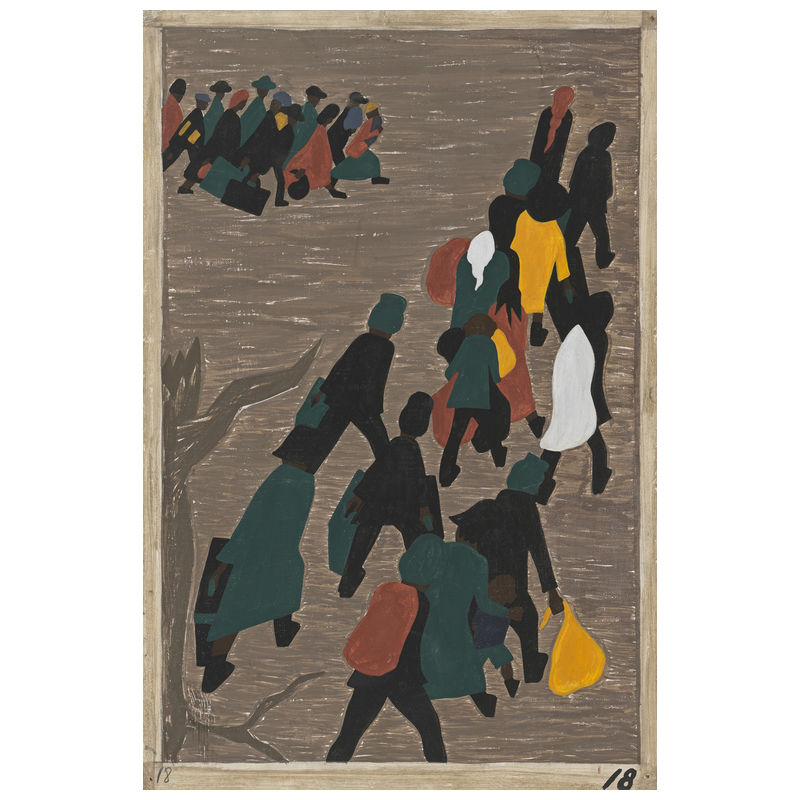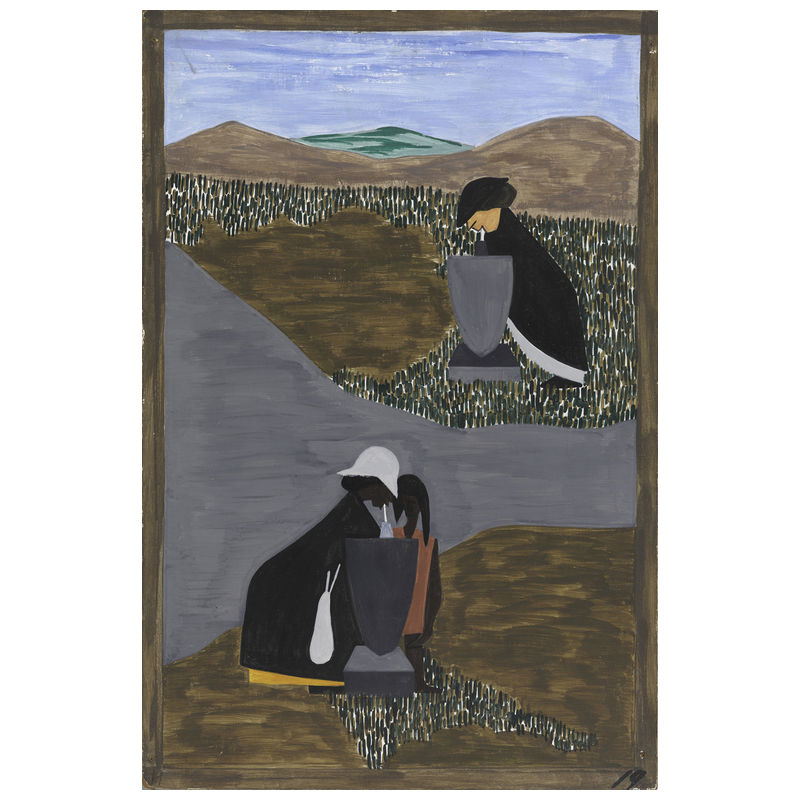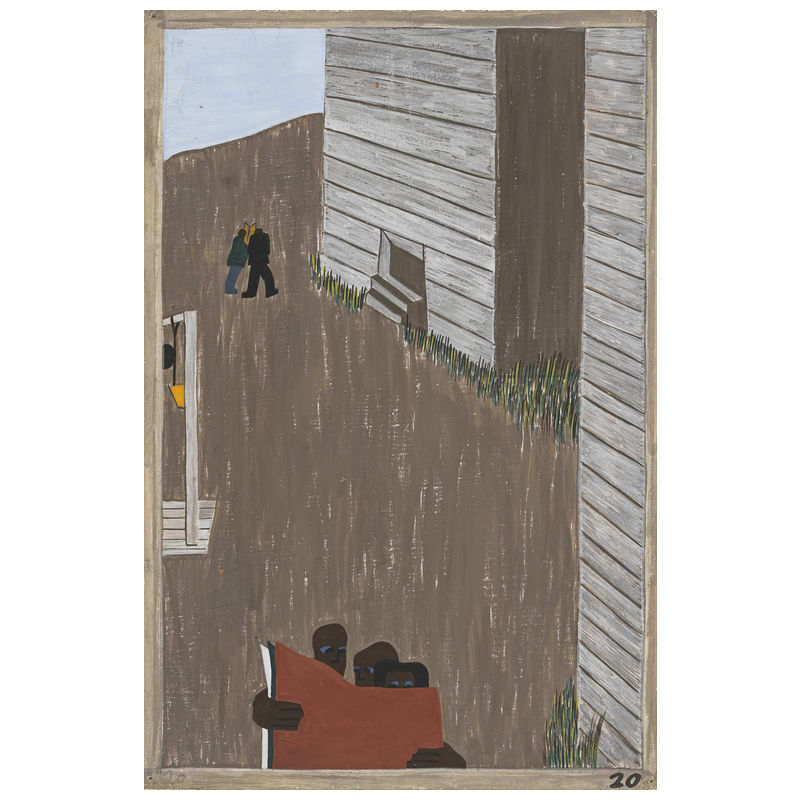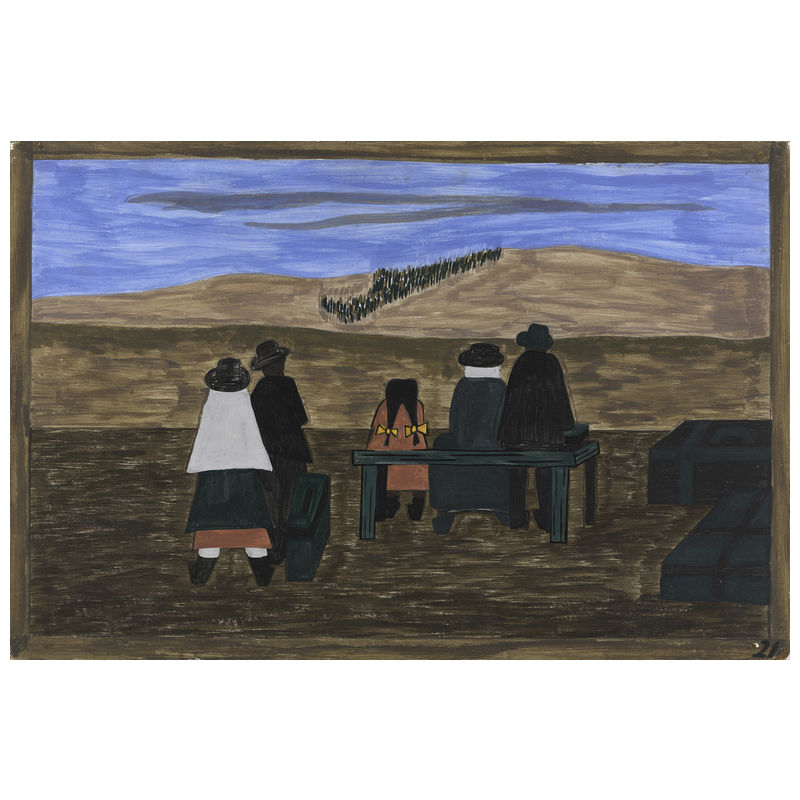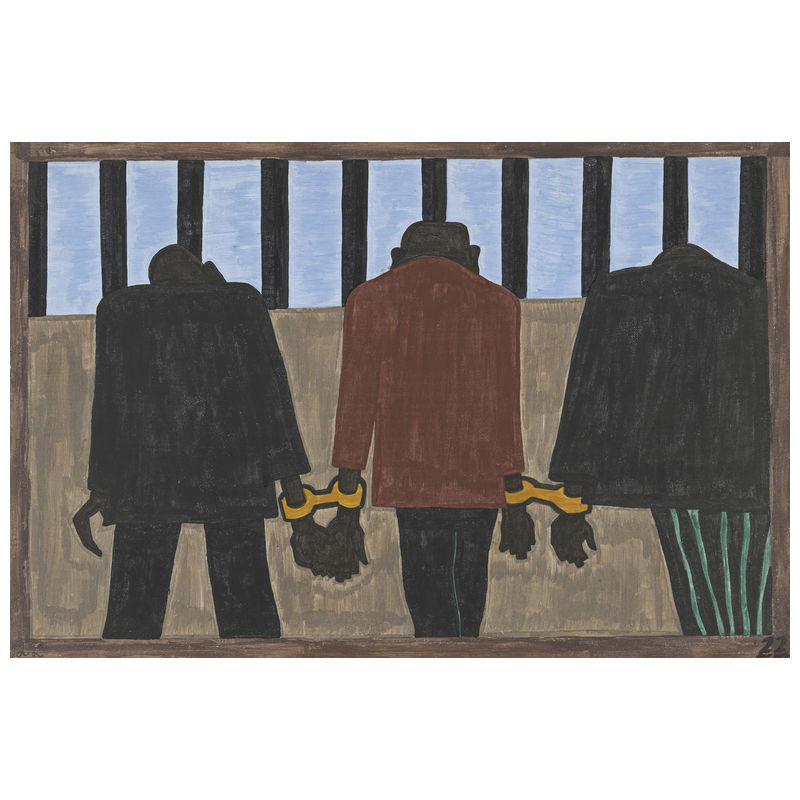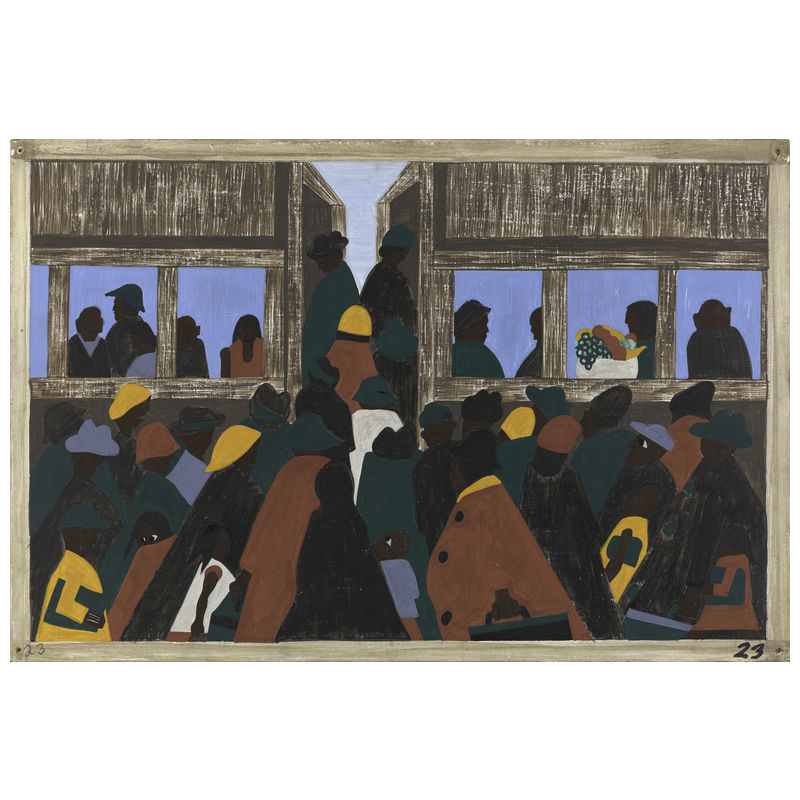Best-known amongst 20th century paintings, Jacob Lawrence (1917-2000) was born in Atlantic City, New Jersey, eventually spending a majority of his childhood in and out of foster care in Philadelphia before reconnecting with his mother in New York City; specifically, Harlem. Growing up, his mother had enrolled him in art classes, securing a love for the field at an early age. Upon dropping out of school at age 16, Lawrence began attending classes at Harlem Art Workshop, taught by renowned artist Charles Alston. Read More
Alston quickly noticed Lawrence’s skills and recommended that he enroll at the Harlem Community Art Center under the instruction of sculptor Augusta Savage. Savage quickly secured him a scholarship and a paid position in the Works Progress Administration. Lawrence continued his studies and working under Alston and Henry Bannarn, another artist of the Harlem Renaissance.
Lawrence is most well known for his portrayal of African American life spoken through his artwork in the way of a storyteller or poet. His early work was often centered around the daily life of Harlem and Black History. At the early age of 23, he completed a 60 panel series titled Migration of the Negro, now referred to as the Migration Series: a depiction of when hundreds of thousands of African Americans moved from the rural South to the urban North post-World War I. He quickly became renowned for his juxtaposing portrayals of African American urbanism, poverty, and the journey in between; essentially striving to encompass the overall black experience at the time through crisp shapes, bright, clear colors, dynamic patterns, posture, and gesture.

